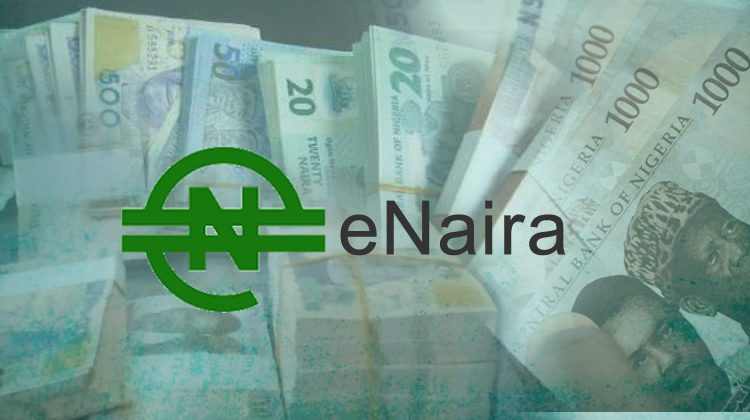
eNaira makes up less than 1% of currency in circulation — Report
Nigeria’s Central Bank Digital Currency (CBDC), eNaira, makes up less than 1% of the total currency in circulation as of March 2024, almost three years after it was launched.
According to data from the quarterly statistical bulletin of the Central Bank of Nigeria (CBN) for the first quarter of 2024, out of N3.87 trillion currency in circulation by March 2024, e-naira made up N13.98 billion.
This means that about 0.36 percent of currency in circulation in the country is in the CBDC, eNaira.
However, the amount of eNaira available for circulation has surged by 1,896 percent from N700.75 million recorded in October 2021.
Nigeria’s Central Bank Digital Currency, eNaira, was launched in October 2021 as one of the country’s initiatives to drive financial inclusion. The digital version of the naira is expected to boost the cashless policy of the CBN. Creating the eNaira seems simple and people without a bank account can also have an eNaira wallet.
The eNaira Speed Wallet app is available for download on the Google Play Store and the iOS Store.
The apex bank also introduced a USSD code, *997#, which allows people without smartphones to also create an eNaira wallet.
The app allows Nigerians to create either an individual or business wallet. While the consumer (Individual) wallet requires an individual to register with a phone number, email address, BVN, and date of birth, the business wallet requires a phone number, email address, TIN, RC number, owner’s BVN, company account number, and date of birth of the business owner.
For the individual wallet, 3 categories of wallets can be created: Bronze Wallet, Silver Wallet, and Gold Wallet.
While the Bronze and Silver wallets are for people without bank account numbers, the former requires only a mobile number, while the latter requires a National Identification Number (NIN) and mobile number to create, but both have their limitations in terms of maximum transactions allowed.
The Gold wallet, which is a tier 3 wallet requires the BVN and bank details of the user to create.
The CBN partnered with several banks, fintech companies, and merchants to enable the adoption and usage of the eNaira.
It also implemented various incentives and regulations to encourage the uptake of eNaira.
For instance, the CBN waived transaction fees for eNaira users until 2023 and has set a minimum capital requirement of N50 million for eNaira service providers.
The apex bank also issued guidelines on the anti-money laundering and counter-terrorism financing (AML/CFT) measures for the eNaira ecosystem.
Meanwhile, the central bank introduced the use of its digital currency as a payment option to recipients of diaspora remittances.
Although it is the world’s second CBDC to be launched, the eNaira has struggled with adoption over the years.




